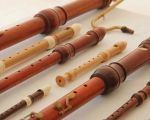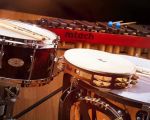1. Introduction: The Importance of Proper Maintenance for Musical Instruments
Musical instruments are not only valuable investments but also essential tools for musicians. Whether you're an amateur or a professional, keeping your instruments in top condition is crucial to ensure their longevity and performance. From guitars to pianos, each instrument requires specific care to keep it functioning optimally and sounding great. In this guide, we’ll explore the best practices for maintaining your musical instruments, offering tips and insights on how to care for various types of instruments, ensuring they last for years to come.
2. General Maintenance Tips for All Musical Instruments
Regardless of the type of instrument, there are several general maintenance tips every musician should follow to keep their instruments in excellent condition. These practices not only help prolong the lifespan of the instrument but also enhance its sound quality. Below are key maintenance practices that apply across the board:
2.1 Regular Cleaning
Cleaning your musical instruments after every use is the first step toward maintaining their longevity. Dust, sweat, and oils from your hands can build up on the instrument’s surface and components, causing wear and potentially affecting its sound. Use appropriate cleaning materials such as soft cloths, brushes, and cleaning solutions designed specifically for your type of instrument.
2.2 Proper Storage
How you store your instrument can have a significant impact on its lifespan. Always store your instrument in a safe, dry place to prevent it from being exposed to extreme temperatures, humidity, or direct sunlight. Consider using a protective case or cover for additional protection. For stringed instruments like guitars or violins, storing them in a case will protect them from accidental damage, dust, and environmental changes.
2.3 Regular Checkups
Much like a car, musical instruments benefit from regular checkups. Schedule routine maintenance with a professional, especially for complex instruments like pianos, brass, or woodwinds. A professional technician can identify and fix small issues before they become significant problems, ensuring your instrument stays in peak condition.
3. How to Maintain Specific Types of Musical Instruments
Each type of musical instrument has its own specific maintenance needs. Below, we dive deeper into some common instruments and offer tailored maintenance tips to keep them performing at their best.
3.1 Maintaining Stringed Instruments (Guitars, Violins, etc.)
Stringed instruments such as guitars and violins require regular care to ensure their strings remain taut and the body stays in good condition. Here are some essential tips:
3.1.1 Changing Strings
Stringed instruments are particularly prone to wear and tear on the strings. Depending on the frequency of use, you should replace strings regularly—at least every 3 to 6 months for guitars or more frequently for high-performance players. If you notice the strings becoming dull, dirty, or losing their tension, it’s time for a change.
3.1.2 Fretboard Cleaning
Over time, the fretboard can accumulate dirt and oils from your fingers. To keep it clean, gently wipe it down with a microfiber cloth after each use, and occasionally clean it with fretboard oil or a specialized cleaner. This prevents the buildup of grime and ensures smoother playing.
3.2 Caring for Woodwind Instruments (Clarinets, Saxophones, etc.)
Woodwind instruments, including clarinets and saxophones, require special attention to their pads, reeds, and mouthpieces. Here are some tips to keep them in good shape:
3.2.1 Cleaning the Mouthpiece
The mouthpiece of a woodwind instrument can become clogged with saliva and debris, affecting sound quality. After each use, remove the reed and thoroughly clean the mouthpiece with warm water and a mouthpiece brush. This prevents any buildup that could cause harm or diminish the sound.
3.2.2 Protecting the Pads
The pads on woodwind instruments play a vital role in sealing the keys. To protect these delicate components, ensure you store the instrument in a case when not in use to prevent pressure on the pads. Additionally, consider using a pad saver to absorb moisture from inside the instrument after playing.
3.3 Maintaining Brass Instruments (Trumpets, Trombones, etc.)
Brass instruments are known for their bright, bold sound, but they also require careful maintenance to keep the valves and slides in working order. Here’s how you can extend the life of your brass instrument:
3.3.1 Regular Lubrication
For instruments like trumpets and trombones, the valves and slides require regular lubrication to ensure smooth operation. Use valve oil and slide grease to keep the parts moving freely. A lack of lubrication can lead to jams or even permanent damage to the internal mechanisms.
3.3.2 Cleaning the Tuning Slides
The tuning slides in brass instruments can accumulate grime and dirt, affecting their sound and playability. Regularly clean them using a brush or cleaning cloth, and make sure to check for any corrosion. This will help maintain both the instrument's aesthetics and functionality.
4. How Regular Maintenance Enhances Longevity
Consistent care for your musical instruments significantly enhances their longevity and performance. The better you maintain your instrument, the fewer repairs and replacements you'll need, which in turn saves you money and keeps the sound quality intact. When instruments are properly cared for, they also hold their value longer, which is crucial if you ever decide to sell or upgrade.
4.1 Prevents Major Repairs
Regular maintenance allows you to identify small issues early, preventing them from turning into costly repairs. For instance, a small crack in a wooden instrument, if left untreated, could expand and ruin the entire body. Regular inspections and minor repairs help to avoid these major problems.
4.2 Retains Instrument Quality
Keeping your instruments in top shape also ensures that their quality is preserved. Over time, instruments that are not maintained properly will lose their sound clarity, precision, and aesthetic appeal. Maintaining cleanliness, tuning, and care for the internal components ensures that your instrument continues to sound as good as new.
5. Conclusion: Care for Your Musical Instruments Today
Maintaining your musical instruments is a vital step in ensuring they last for years and perform at their best. With regular cleaning, proper storage, and specific care for each type of instrument, you can extend the life of your equipment and enjoy the best possible sound. Whether you're a beginner or a seasoned musician, make instrument care a priority. To explore more products and services related to musical instrument maintenance, visit Beat Trigger for the best recommendations.








